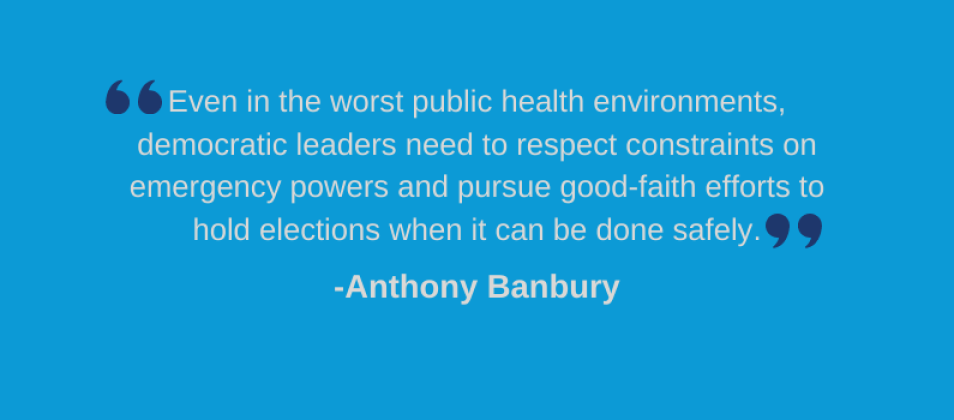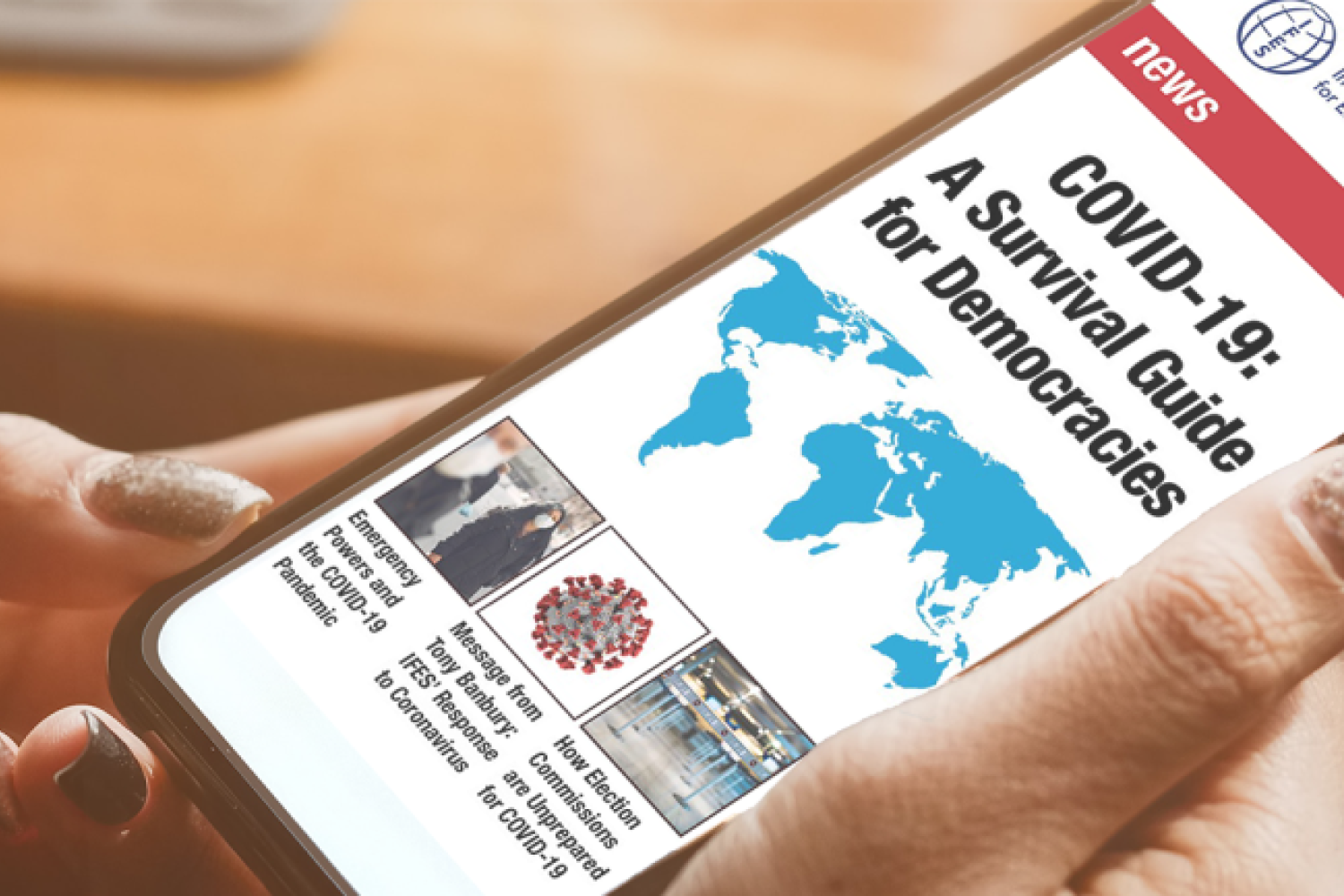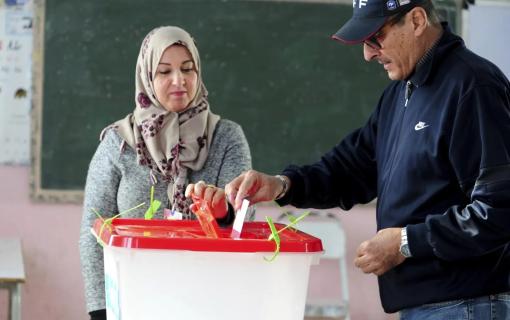
V-Dem warns of democratic backsliding in COVID’s wake
V-Dem warns of democratic backsliding in COVID’s wake was published by The Washington Diplomat on December 28, 2021.
In 2020, as the world shut down to insulate against COVID-19, a disturbing side effect of the pandemic began quietly taking root in some corners of the world: democratic backsliding and growing autocracies.
While the news worries freedom lovers everywhere, democracy could rebound once governments lift their health restrictions as soon as the pandemic ends. So says V-Dem, a Swedish nonprofit that tracks the health of democracies across a variety of indicators.
While some nations have seen a significant deterioration of freedoms during the past 18 months, the pandemic’s direct impact on the vitality of democracy itself has so far been limited, it says. But those who run Washington’s top global development organizations aren’t waiting to sound the alarm.
“More people are struggling for democratic rights and freedoms around the world than really ever since the fall of the Berlin Wall in 1989,” Daniel Twining, president of the International Republican Institute (IRI), told me in a recent episode of Democracy! The Podcast.
Twining argues that democracy doesn’t work without full and effective citizen engagement, something he says has been badly compromised by malign influence and disinformation—mostly from foreign regimes such as Russia and China. “We see people stepping out all over the place. We also see repressive governments cracking down in, frankly, new and sophisticated, and dangerous ways.”
Twining, along with Anthony Banbury, president and CEO of the International Foundation for Electoral Systems (IFES), and Ambassador Derek Mitchell, president of the National Democratic Institute, lead the Consortium for Elections and Political Process Strengthening (CEPPS). Funded by the US Agency for International Development, CEPPS—which uses V-Dem data to inform its programming—oversees USAID’s largest democracy assistance awards.
Besides helping advance democracy in more than 50 nations, the consortium has also thrown its support behind the Summit for Democracy. The Biden administration has invited more than 100 countries to attend, and will hold at least one follow-up summit in 2022.
“The fact is, the autocrats are on the offensive, and they have a sense that democracy is fragile, and, the smaller ‘d’ democrats around the world, feel like they’re on the defensive, and they’re playing a weak hand where they’re playing it with confidence, and they’re trying to gain an advantage,” said Mitchell, who in 2012 was the first US ambassador to return to Burma after a 22-year break in diplomatic relations.
While some may wonder if advocates exaggerate the degree to which COVID-19 restrictions have eroded democracy, V-Dem’s report shows that even the smallest declines in freedom are troublesome, because most autocracies develop in a predictable manner—beginning with restrictions on media, academic freedom and civil society. Then governments promote polarization among their own citizens with disinformation campaigns via social media before moving on to blatant disrespect and intolerance for opposing political views. And that’s when more visible attacks on democracy become apparent, which makes less inconspicuous activities, like the government’s attitude towards journalists, reliable indicators of democratic health.
Still, some experts find that lengthy lockdowns and other restrictive health measures have egregiously and unnecessarily accelerated democratic decay in places like Sri Lanka, Nepal and Paraguay. El Salvador, for instance, has seen widespread crackdowns on journalists as well as human rights violations in the past year. Observers say President Nayib Bukele is escalating his abuse of power through manipulating the judicial system with an eye toward his possible re-election in 2024.
“Democracy in any country is always a work in progress,” says Banbury, a 20-year veteran of the United Nations, including seven years as the UN’s assistant secretary-general for field support. “Even in the worst public health environments, democratic leaders need to respect constraints on emergency powers and pursue good-faith efforts to hold elections when it can be done safely.”
Banbury, who designed and led the UN’s first-ever emergency health mission in 2014, said at even at the height of Liberia’s Ebola crisis, IFES worked with the National Elections Commission and medical experts “to integrate a range of practical health measures, such as social distancing and revised processing, which helps ensure a safe exchange of ballot papers, ID cards, and other voting materials in this type of climate.”
Some countries, like Honduras, have weathered the restraints of the current pandemic well enough to deliver successful elections. Preliminary results from Honduran presidential elections in late November saw the largest voter turnout in 24 years. The victory of Xiomara Castro’s Freedom and Refoundation Party marks the first time a woman leads Honduras. While Castro— who beat 11 other candidates—promises “no abuse of power,” her win ends the 12-year rule of the conservative National Party of Honduras.
“Elections are critical to protecting democratic rights during a time like the COVID-19 pandemic when significant state power is often concentrated in the executive branch through powerful emergency measures,” Banbury said. “It is important that leaders reschedule elections as quickly as possible, if the public health environment is so dire that they genuinely need to be postponed.”
Adds Mitchell: “Democracy is not simply about a process or an election. It’s a culture that has to be developed [and] re-energized by the citizens of every generation … This is the challenge of our time. There are authoritarian opportunists who want to prey on those who are frustrated, or concerned about the course of democracy. And they’re willing to get out there and use our moments of weakness to gain advantage. We can’t let that happen.”
Published on January 13, 2022.












